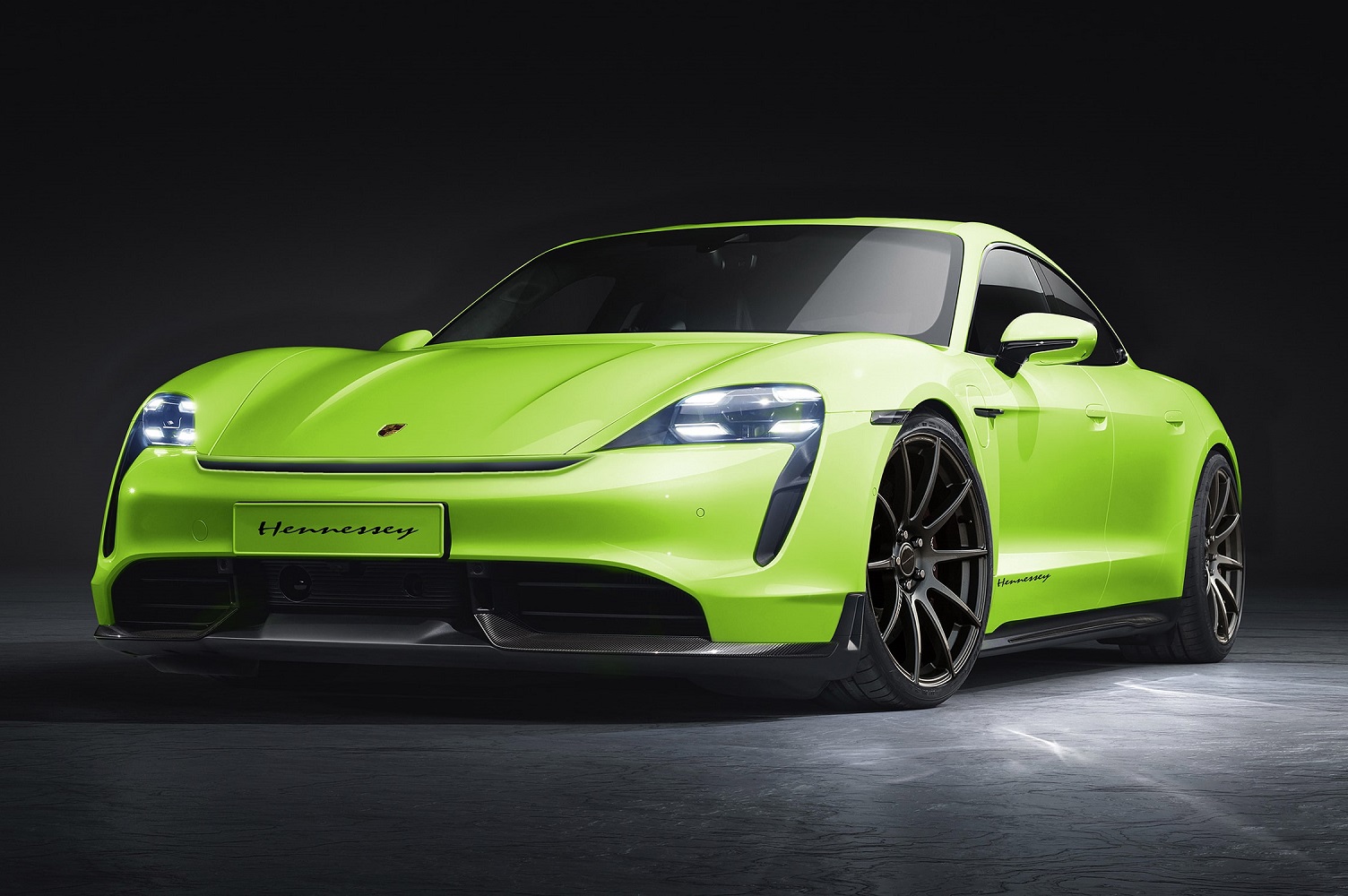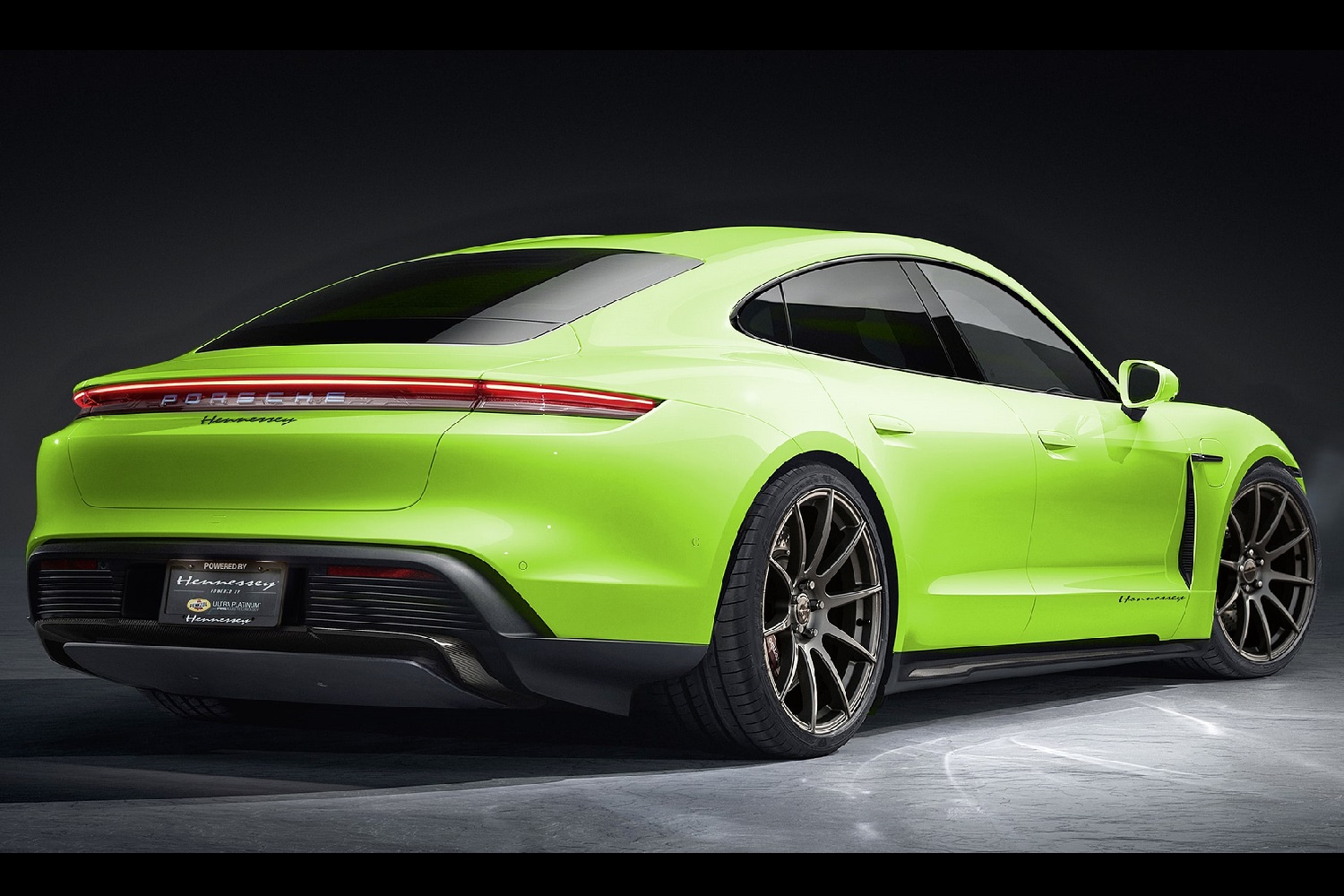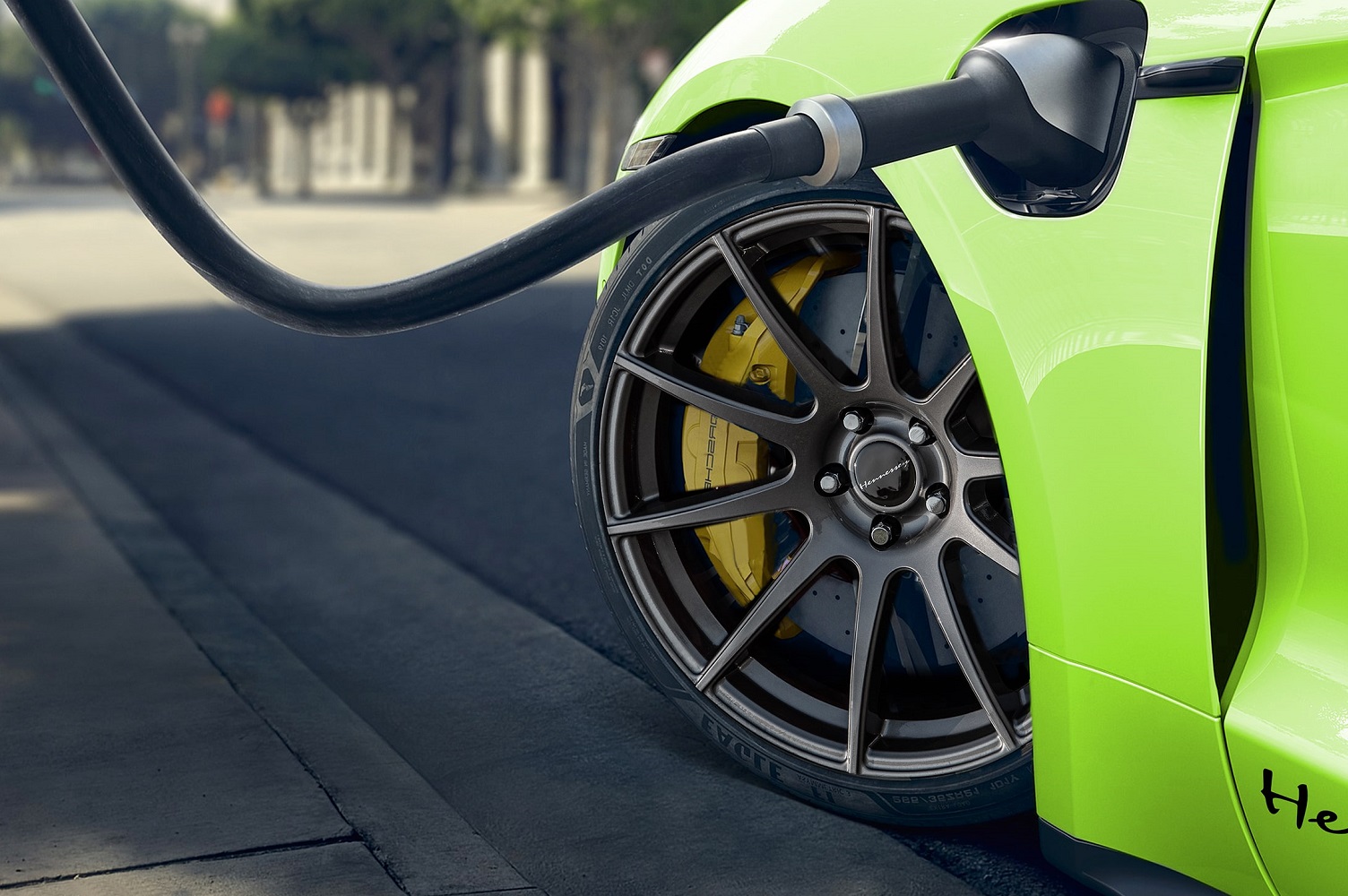American tuner Hennessey is well known for its work with V8-engined, high-horsepower muscle cars like the Chevrolet Camaro and the Ford Mustang. It also built a 1,000-horsepower Jeep Gladiator, and it has experimented with SUVs like the Cadillac Escalade and the Lincoln Navigator in the past. It will visit Porsche territory for the first time by releasing an array of aftermarket parts designed to fit the Taycan, the German firm’s first series-produced electric model.
The Taycan stands out as the first Porsche Hennessey has ever worked on, and it’s also the first electric car it has put its hands into. Company founder and CEO John Hennessey explained his team has wanted to modify electric cars for a while, and the Taycan is the right platform to start with because it’s quick right out of the box. The upgrades available from the Texas-based tuner will initially be limited to fairly basic parts like alloy wheels, stickier tires, and new-look interior components, though photos of the upgraded cabin haven’t been released yet. Stylists also drew more muscular-looking front and rear bumpers for the sedan. Renderings show a wide vent right below the hood that reminds us of the 911 GT3.
Taycan owners seeking a boost in performance won’t be able to get it from Hennessey right when the car goes on sale. The firm will receive the Taycan it ordered in early 2020, when Porsche begins delivering the model to American customers, and it will turn its sedan into a test bed for powertrain modifications. “We will see what might be possible in terms of adding more power,” Hennessey wrote in a statement. This suggests that powertrain upgrades will be available sooner or later.
Pricing information for the upgrades hasn’t been published yet. We expect they’ll add a few thousand dollars to the Taycan’s base price, which checks in at $150,900 in Turbo trim, and $185,000 in Turbo S specification.
Hennessey has no plans to move away from the muscle cars it has historically worked with; hugely powerful V8s are still at the core of its business, and they’ll remain there in the foreseeable future. “Nearly all of our clients still want raw, powerful [piston-powered] engines,” the company clarified. It added it’s branching out into the premium electric car segment because some of its customers are turning to vehicles like the Taycan and its arch-rival, the Tesla Model S, as daily drivers.
Editors' Recommendations
- Audi Q6 e-tron ushers in the automaker’s next EV phase
- Porsche’s most powerful production car is an EV
- Cadillac aims to balance its lineup with a small electric SUV
- Acura’s resurrected ZDX SUV is an EV shortcut
- Lamborghini teases its first all-electric supercar ahead of Friday’s big reveal







